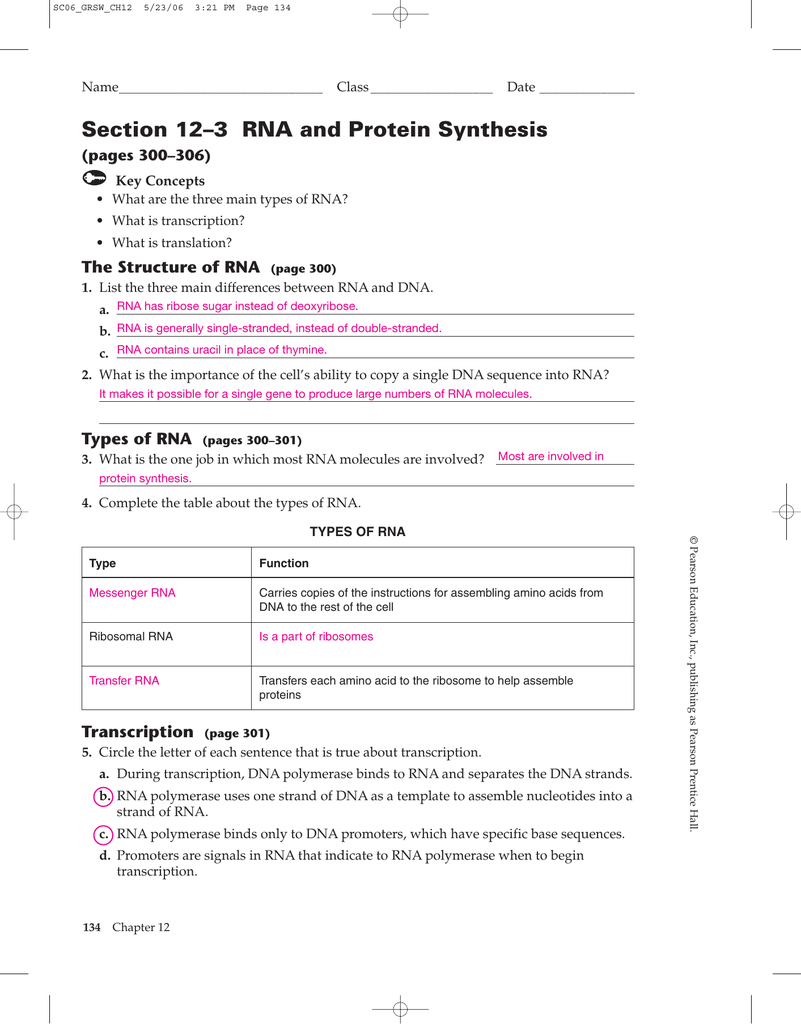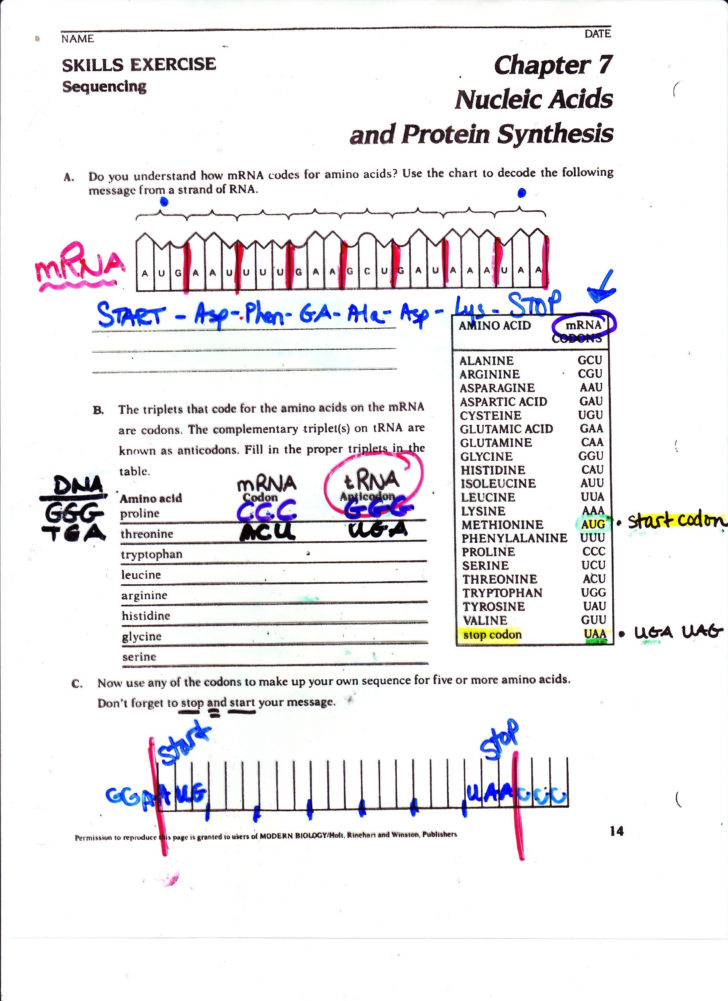Imagine a world where your body couldn’t build the proteins it needs to function. This is the reality for individuals struggling with genetic diseases, where mutations in their DNA can disrupt the delicate process of protein synthesis. This intricate dance of building blocks, governed by our genetic code, is essential for every aspect of life, from making enzymes that digest food to creating antibodies that fight off infections. But what happens when this process goes awry? In this article, we’ll delve into the fascinating world of protein synthesis, explore the devastating consequences of mutations, and provide a comprehensive review with answers to key questions.

Image: omnichannelretailingforum.com
The impact of mutations on protein synthesis can be dramatic, leading to a wide range of diseases. From the debilitating effects of cystic fibrosis to the complex challenges posed by cancer, mutations can disrupt the delicate balance of our internal cellular machinery. Understanding this complex relationship between genetic code, protein synthesis, and disease is crucial for developing new treatments and therapies.
Unraveling the Mystery: A Deep Dive into Protein Synthesis
Protein synthesis is the fundamental process by which our cells create proteins. Our DNA, housed within the nucleus of every cell, holds the blueprints for these proteins. These blueprints, known as genes, are transcribed into messenger RNA (mRNA), which then travels to ribosomes, tiny factories within the cytoplasm. Ribosomes, like skilled construction workers, read the mRNA code and assemble amino acids, the building blocks of proteins, in a specific sequence.
From DNA to Protein: A Step-by-Step Guide
Here’s a breakdown of the key steps involved in protein synthesis:
- Transcription: The DNA sequence of a gene is copied into mRNA. This process takes place within the nucleus.
- Translation: mRNA travels out of the nucleus and into the cytoplasm, where it binds to ribosomes. Ribosomes read the mRNA code and assemble amino acids into a polypeptide chain.
- Folding: The polypeptide chain then folds into a specific three-dimensional shape, forming a functional protein. This intricate folding process is vital for the protein’s function.
The Devastating Impact of Mutations on Protein Synthesis
Mutations, alterations in the DNA sequence, can disrupt protein synthesis in several ways:
- Frameshift mutations: These mutations add or delete nucleotides in the DNA sequence, altering the reading frame of the genetic code. This can lead to the production of a non-functional protein or a completely different protein.
- Nonsense mutations: These mutations introduce a premature stop codon, leading to truncated and often dysfunctional proteins.
- Missense mutations: These mutations replace one nucleotide with another, resulting in the substitution of one amino acid for another. This can affect protein function depending on the location and nature of the amino acid change.

Image: db-excel.com
The Science Behind Disease: Understanding the Link
Mutations linked to diseases can disrupt protein synthesis in various ways:
- Cystic fibrosis: This disease is caused by a mutation in the CFTR gene, which codes for a protein responsible for transporting chloride ions across cell membranes. The mutation results in a defective protein that cannot function properly, leading to thick mucus buildup in the lungs and other organs.
- Sickle cell anemia: This genetic disorder arises from a mutation in the beta-globin gene, which codes for a protein component of hemoglobin. The mutated protein causes red blood cells to become sickle-shaped, leading to blood clots and other complications.
- Cancer: Mutations in tumor suppressor genes or oncogenes can disrupt the delicate balance of cell growth and division, contributing to the development of cancer.
The Cutting Edge: Latest Trends in Protein Synthesis Research
The field of protein synthesis research is continuously evolving, with ongoing efforts to:
- Develop new gene-editing technologies: CRISPR-Cas9 technology allows scientists to precisely edit DNA sequences, potentially correcting mutations that cause disease.
- Explore personalized medicine: Understanding the specific mutations that affect an individual’s health can lead to tailored treatments and therapies.
- Design novel drugs: Researchers are developing drugs that target specific steps in protein synthesis, potentially providing new treatment options for diseases.
Expert Tips: Demystifying Protein Synthesis
Understanding protein synthesis and its connection to disease can be complex. Here are some tips for navigating this fascinating field:
- Start with the basics: Familiarize yourself with the foundational principles of DNA, RNA, and protein structure.
- Visualize the process: Use diagrams and animations to understand the intricate steps involved in protein synthesis.
- Connect it to real-world examples: Explore the diseases caused by mutations in protein synthesis, such as cystic fibrosis and sickle cell anemia.
By combining a solid foundation with practical examples, you can effectively grasp the complexities of protein synthesis and its impact on our health. Remember, the more you know about this essential process, the better equipped you will be to understand the latest scientific developments and contribute to meaningful discussions about genetic diseases and their potential solutions.
FAQ: Common Questions About Protein Synthesis and Mutations
Q: What are some of the most common mutations affecting protein synthesis?
A: Some of the most common mutations include frameshift mutations, nonsense mutations, and missense mutations. These mutations can disrupt the reading frame of the genetic code, lead to premature protein termination, or alter the amino acid sequence of the protein.
Q: How are mutations linked to disease?
A: Mutations can lead to the production of dysfunctional proteins or proteins that are missing altogether, disrupting crucial cellular processes. This can lead to a wide range of diseases, including cystic fibrosis, sickle cell anemia, and various forms of cancer.
Q: What are some potential therapies for diseases caused by mutations in protein synthesis?
A: Gene therapy, which involves replacing or correcting mutated genes, is a promising approach. Other therapies include drug development that targets specific steps in protein synthesis to mitigate the effects of mutations.
Q: Is it possible to prevent mutations?
A: While we cannot prevent all mutations, there are measures that can reduce the risk, such as avoiding exposure to mutagens (substances that cause mutations) and maintaining a healthy lifestyle.
Protein Synthesis And Mutations Review Answer Key
Conclusion
Protein synthesis is a fundamental biological process, essential for life. Mutations disrupting this vital process can have devastating health consequences. Understanding the intricate relationship between genetic code, protein synthesis, and disease is crucial for developing new treatments and therapies. By exploring this fascinating world, we gain a deeper appreciation for the complexities of life and the ongoing quest for better health.
Are you interested in learning more about protein synthesis and mutations? What questions do you have about this topic? Please share your thoughts and connect with us in the comments below.






